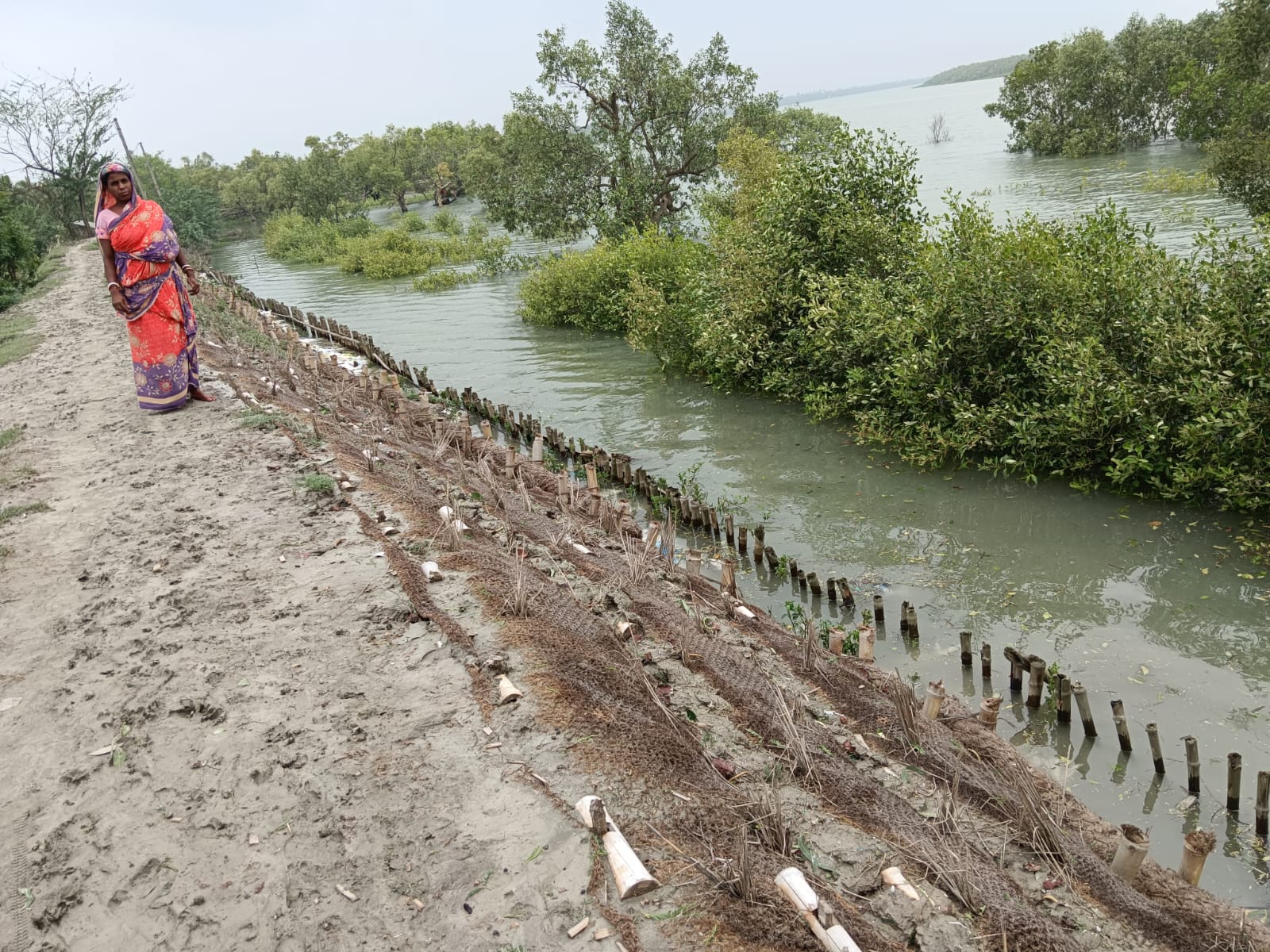PATHARPRATIMA: In the wake of Cyclone Remal, which struck the coastal regions of West Bengal and Bangladesh in May 2024, the community's proactive measures have played a crucial role in mitigating the disaster's effects. Spearheaded by SEEDS (Sustainable Environment and Ecological Development Society), these efforts have significantly lessened the cyclone's impact through strategic mangrove restoration and robust community training programs.Cyclone Remal, characterized by wind speeds of 100 to 135 kilometers per hour and severe storm surges, caused extensive damage across vulnerable coastal areas. However, the extensive community engagement and environmental conservation measures initiated by SEEDS in the aftermath of Cyclone Amphan in 2020 have fortified local communities against such catastrophic events.
Cyclone Remal: How community efforts have weathered the storm
Cyclone Remal, which struck in May 2024, was a devastating cyclonic storm that severely affected the coastal regions of West Bengal, India, and Bangladesh. With wind speeds between 100 to 135 kilometers per hour and storm surges flooding low-lying areas, it caused widespread destruction. However, extensive community efforts in mangrove restoration helped save countless lives and minimize damage. The disaster underscored the importance of preparedness and resilience in vulnerable regions, highlighting the effectiveness of coordinated response strategies in mitigating the impact of such powerful natural events.
SEEDS resilient work to fortify local communities against remal
Following the devastation caused by Cyclone Amphan in 2020, SEEDS initiated crucial recovery and resilience efforts in Patharpratima. They focused on implementing nature-based solutions, such as mangrove plantation and stream bank protection, across nearly six-gram panchayats. These efforts have not only safeguarded the communities from floods but also provided additional income opportunities for their livelihoods. The impact of subsequent cyclones, like Remal, was significantly lessened. SEEDS also organized capacity-building programs, including search and rescue operations, shelter management, evacuation, fire safety, and first aid training, further enhancing community resilience.
These programs have equipped community members with essential skills to support each other during floods and storm seasons. SEEDS created a network of over 260 volunteers who used their knowledge and training to support the community during Cyclone Remal. Their efforts and the strengthened stream bank and mangrove plantations held strong during the cyclone, showing the impact of SEEDS' work.
Stream Bank Protection: A community triumph
In the Stream Bank Protection project in Heramba Gopalpur, Sandip Das played a crucial role. Specializing in bamboo shaping, he constructed and stabilized stream banks using bamboo coir logs and vetiver grass. His innovative techniques and motivational leadership inspired fellow laborers, ensuring the project's success. Sandip’s training in these methods has significantly contributed to the project’s feasibility and longevity, making him an inspiring figure.
Sekh Kader from Baro Banashyam Nagar Vill-Mondir tala said “We have successfully completed the responsibilities and work for building the stream bank, and I want to extend our heartfelt thanks to SEEDS for their support in protecting our village from future floods and land erosion. The stream bank will significantly reduce soil erosion, ensuring the safety of our villagers and communities. Additionally, we have earned extra income from this work, which supports our livelihoods.”
Ashok Mondal from Banashyam Nagar Vill-Pancham Geri quoted “We are currently engaged in a stream bank protection project assigned to us by SEEDS. This initiative aims to create a shield against floods, soil erosion, and future storms, as well as mitigate the effects of river overflow. By undertaking this work, we are ensuring the safety of our villages and feel a sense of security, as if we are protecting our own community.”
SEEDS' efforts have not only protected the environment but also strengthened community resilience during the Remel cyclone. By implementing sustainable stream bank protection and mangrove restoration, SEEDS ensured that the local communities could withstand severe weather conditions, significantly reducing flood risks. This approach has not only safeguarded the natural landscape but also provided a sense of security and enhanced livelihoods for the communities involved.
SEEDS’ resilient efforts in Patharpratima: A model of community empowerment and environmental protection
SEEDS’ work in Patharpratima, have profoundly impacted both quantitatively and qualitatively. Quantitatively, SEEDS organized capacity-building programs and created a network of over 260 volunteers. These initiatives resulted in the planting of one lakh mangroves and strengthened stream banks that withstood Cyclone Remal, protecting the community from soil erosion and floods. SEEDS also trained volunteers on lifesaving skills and bioengineering at the PatharPratima Block. Task forces were utilized during the most recent cyclone to move vulnerable families to safe shelters. 260 task force members evacuated 830 households. Additionally, the efforts generated extra income for the community, enhancing livelihoods.
Qualitatively, the training in search and rescue, shelter management, evacuation, fire safety, and first aid equipped community members with essential skills. This empowered them to support each other during adverse weather conditions. Voices from the community, like Sekh Kader and Ashok Mondal, highlight the sense of security and gratitude towards SEEDS for their protection against future floods and land erosion. Their innovative techniques and motivational leadership have made a significant impact, ensuring the project's success and longevity.
Conclusion
Cyclone Remal highlighted the importance of community efforts and environmental conservation in disaster management. The mangrove restoration work by SEEDS exemplifies how proactive measures can significantly reduce the impact of natural disasters. As climate change continues to exacerbate the frequency and intensity of such events, it is imperative to invest in sustainable and community-driven initiatives to build resilience and safeguard vulnerable populations.
By leveraging local knowledge and fostering community involvement, we can create a more robust defense against future cyclones, ensuring both environmental sustainability and the protection of human lives.


